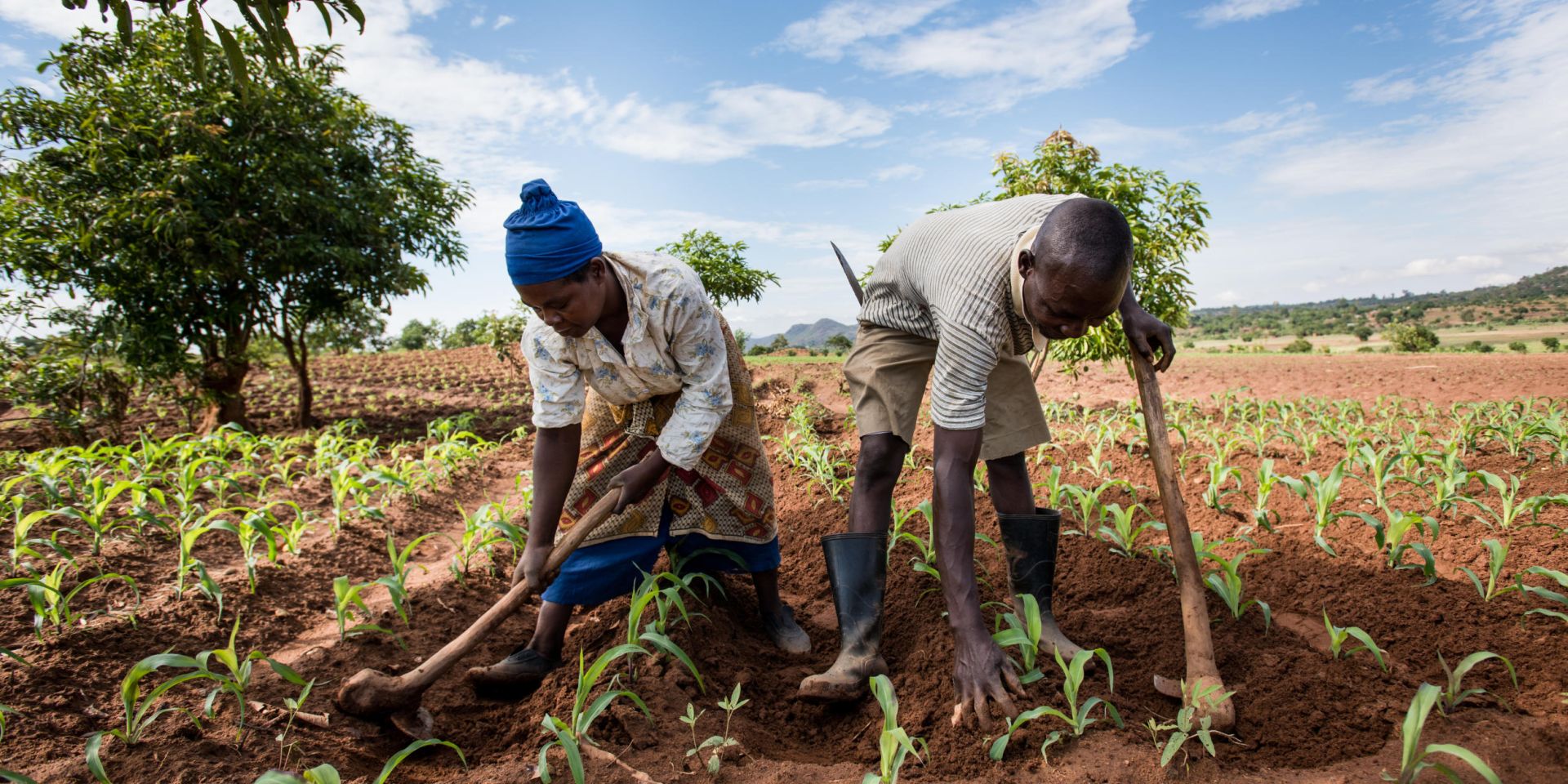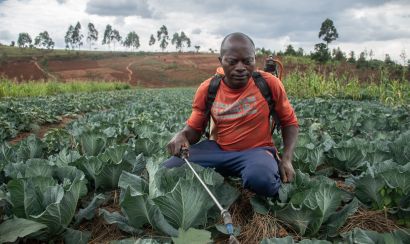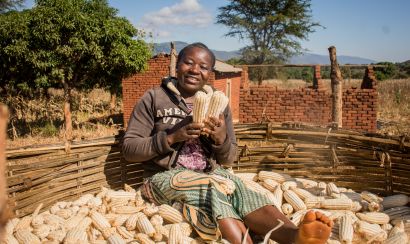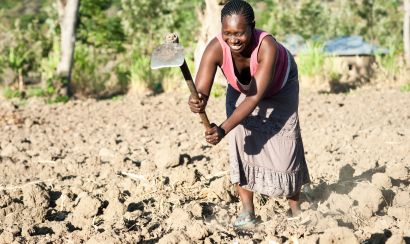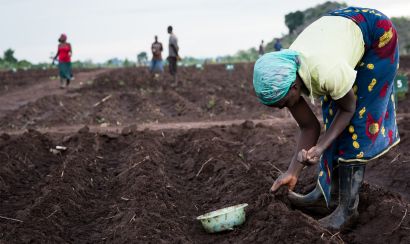Achieving a Zero-Hunger World Together
After remaining unchanged for five years, world hunger increased in 2020 under the shadow of the COVID-19 pandemic. Through our engagement with the UN Food Systems Summit — whose pre-summit starts on Monday, July 26th — we aim to help promote agricultural innovation through mobilizing millions of smallholder farmers to ensure access to safe, nutritious food for all.
About one-tenth — up to 811 million people — of the world’s population experienced chronic hunger last year; this is more people than the previous five years combined. According to the 2021 SOFI Report, under the current trajectory, the world is unlikely to meet SDG2 (the United Nations’ Sustainable Development Goal Two). SDG2 aims to end all forms of hunger and malnutrition by 2030 by promoting sustainable agriculture, supporting small-scale farmers, and ensuring equal access to land, technology, and markets.
This year, One Acre Fund has been invited to participate, along with a diverse and broad group of stakeholders, at the UN Food Systems Summit. This once-in-a-generation event aims to support new initiatives that will ensure global food access and increased resilience of agri-food systems. Since late 2020, One Acre Fund has been supporting Action Track 1 — whose goal is to ensure access to safe and nutritious food for all, by spearheading innovative ideas to help the world get back on track with SDG2.
The World Bank estimates that by 2030, nine people out of 10 of the world’s population living on less than $1 per day will live in Sub-Saharan Africa — 79% of them in rural areas. Despite being farmers, these communities face ‘hunger seasons’ every year because they can’t grow enough to feed their own families. The rural concentration of these farmers represents one of the largest leverage points in correcting our course to achieve zero hunger globally. If we can get smallholder African farms to produce more, we could drastically reduce global hunger.
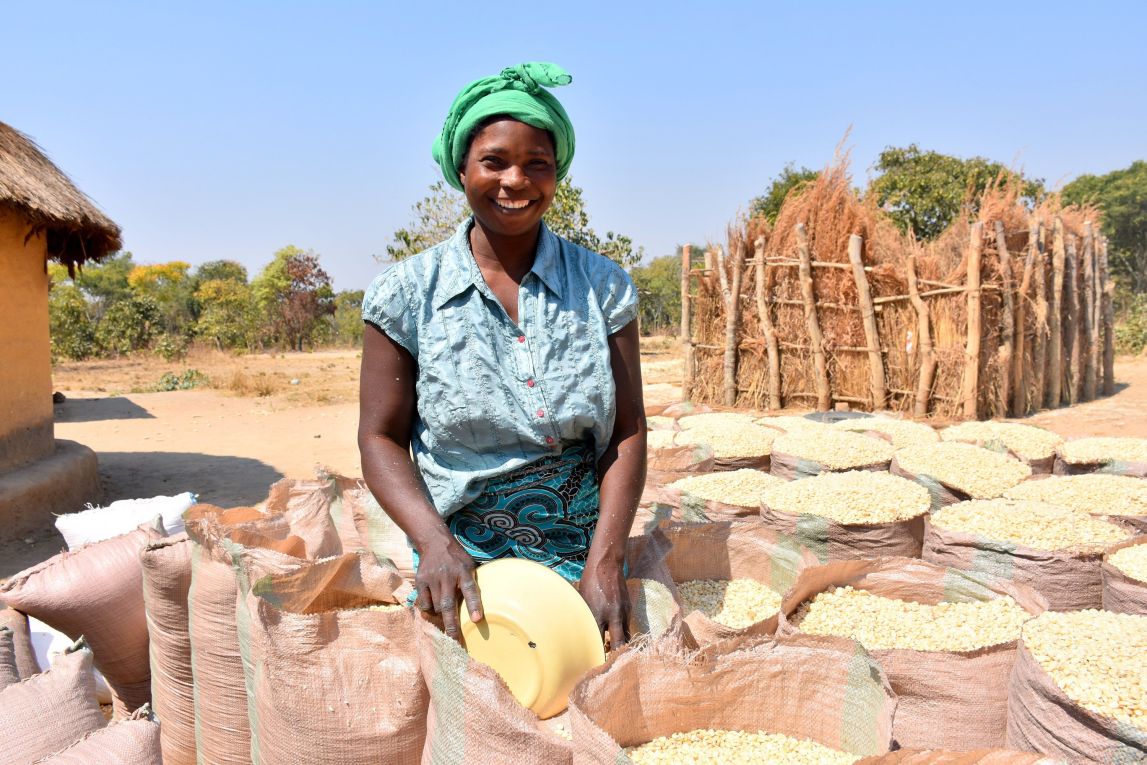
Simple, effective interventions
In the course of our work in rural Africa, we have seen what simple interventions like providing access to hybrid seed, fertilizer, and farming training can do: vast yield improvements that allow farmers — most of whom are women — to feed their families and communities, afford them improved nutrition and earn incomes while maintaining soil health through climate-smart farming. Equipping farmers to produce more is a cost-effective and sustainable way to end hunger.
For this reason, one of our biggest priorities is to democratize access to agricultural knowledge and tech, planting supplies, and finance. Expanding financial reach means creating inclusive financial services that smallholders can access, breaking access barriers, such as gender, to finance and planting materials, and carrying out last-mile delivery to ensure every farmer we serve gets seed, fertilizer, and training, no matter how remote their location. As well as driving up food production, we are ensuring that production increases will last into future generations by empowering farmers to improve soil health and environmental sustainability.
Smallholder farmers are important not just because of their numbers — 500 million globally, supporting more than 2 billion people directly — but because of what they can do: lead the fight to end hunger and malnutrition. This is why we are excited to support the development of the Zero Hunger Coalition through the Summit, starting with discussions during the pre-summit on July 26th, which will bring much-needed new energy to this fight. Smallholder farmers must be at the center of ending hunger, and we look forward to helping bring their voices to this new coalition for action.
